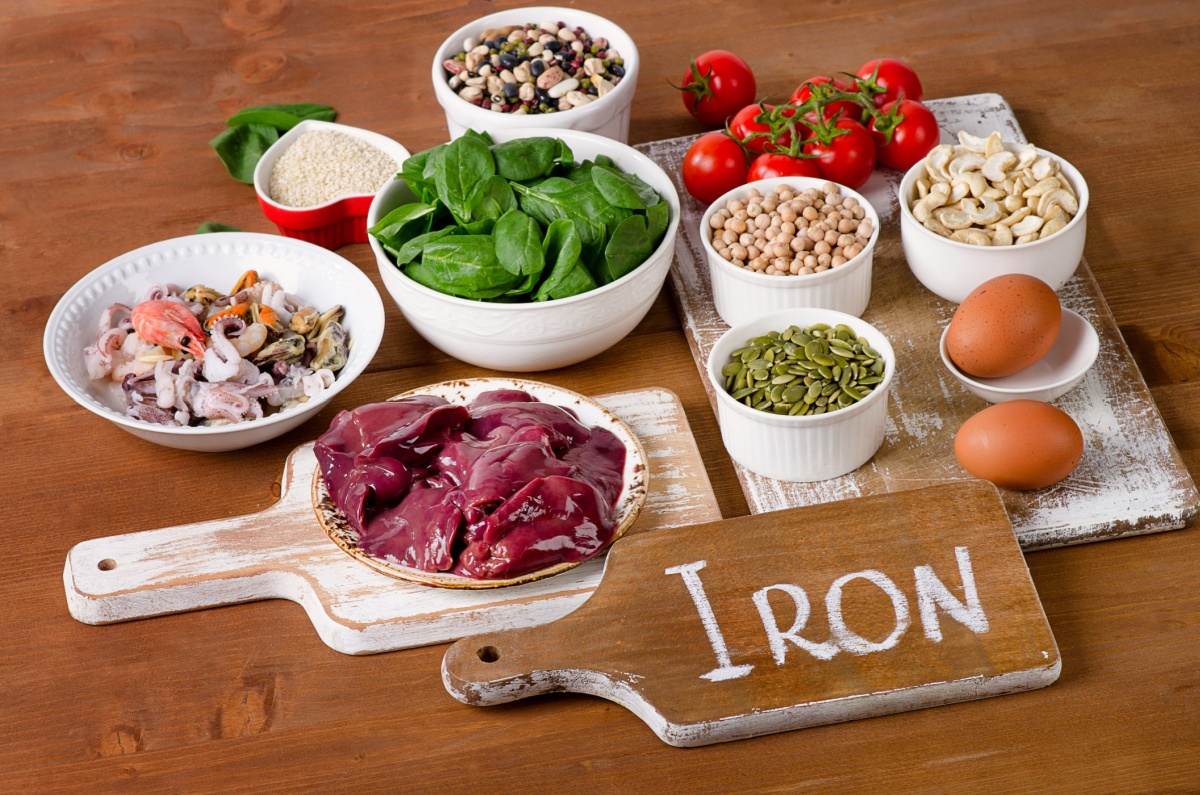
Iron is a vital mineral your body needs to thrive. It helps produce hemoglobin, a protein in red blood cells that carries oxygen throughout your body. Without enough iron, your cells and tissues don’t get the oxygen they need to function properly. This can lead to a condition called iron deficiency anemia, which may leave you feeling tired, weak, and unable to concentrate. Fortunately, you can boost your iron levels by incorporating iron-rich foods into your diet.
What Is Anemia?
Anemia occurs when your blood doesn’t have enough healthy red blood cells to carry adequate oxygen to your tissues. There are several types of anemia, but iron deficiency anemia is the most common. This condition develops when your body doesn’t have enough iron to produce hemoglobin.
The symptoms of anemia can vary depending on its severity but often include:
- Fatigue
- Weakness
- Pale skin
- Shortness of breath
- Dizziness or lightheadedness
- Cold hands and feet
Certain groups are more at risk of developing anemia, including women, children, and people with chronic health conditions. For women, factors like heavy menstrual cycles or pregnancy can increase the risk of anemia, which is why iron intake is a key component of women’s health.
If you suspect you have anemia, it’s important to see a healthcare professional for proper diagnosis and treatment.
How Much Iron Do You Need Each Day?
The amount of iron you need varies based on your age, sex, and overall health. Here are the general daily recommendations:
- Infants (7-12 months): 11 mg
- Children (1-13 years): 7-10 mg
- Teen Boys (14-18 years): 11 mg
- Teen Girls (14-18 years): 15 mg
- Adult Men (19+ years): 8 mg
- Adult Women (19-50 years): 18 mg
- Pregnant Women: 27 mg
Keep in mind that iron is available in two forms: heme and non-heme iron. Heme iron, found in animal products, is more easily absorbed by the body. Non-heme iron, found in plant-based foods, is harder to absorb, and you will need to eat about 80% more iron to meet your daily requirements if you follow a plant-based diet.
Which Foods Are High in Iron?
Incorporating a variety of iron-rich foods into your diet is a natural way to improve your iron levels and overall health. Here are some of the best options for combatting iron deficiency anemia:
Heme Iron Sources (Animal-Based)
- Red Meat: Beef, lamb, and venison are excellent sources of iron. In fact, a small serving of lean beef can provide nearly half of your daily iron needs.
- Poultry: Chicken and turkey are versatile, iron-rich options. Take note that dark meat contains more iron than white meat.
- Seafood: Shellfish like clams, oysters, and mussels are some of the richest sources of iron. Fish such as salmon and tuna also contain moderate amounts of iron.
- Organ Meats: Liver and kidney are packed with iron, though they may not be everyone’s favorite.
Non-Heme Iron Sources (Plant-Based)
- Leafy Greens: Spinach, kale, and Swiss chard are iron-rich vegetables that pair beautifully with vitamin C-rich foods.
- Legumes: Lentils, chickpeas, and black beans are nutritional powerhouses that are high in iron and other essential nutrients.
- Tofu and Tempeh: These plant-based protein sources are excellent for vegetarians and vegans looking to boost their iron intake.
- Nuts and Seeds: Pumpkin seeds, sesame seeds, cashews, and almonds are tasty and iron-packed snacks.
- Fortified Foods: Many breakfast cereals, breads, and plant-based milks are fortified with iron, making them easy options for meeting your daily requirements.
- Whole Grains: Quinoa, brown rice, and oatmeal are healthy carb options that also contain iron.
- Dried Fruits: Raisins, apricots, and prunes are sweet treats that also double as high-iron foods.
Pairing Iron With Vitamin C
To maximize iron absorption, combine foods rich in iron with those high in vitamin C. For example, add strawberries to your spinach salad or drizzle lemon juice over grilled chicken.
Can You Have Too Much Iron?
While iron is essential, it’s possible to have too much of a good thing. Excessive iron intake can lead to a condition called iron overload, which may cause serious health issues like liver damage, heart problems, and diabetes. This is why it’s important to consult with your doctor before making significant changes to your diet or starting iron supplements.
The professionals at Spectrum Health Services are here to help you manage your iron levels safely. Our comprehensive services include blood tests to check for iron deficiency or overload, personalized nutrition counseling, and referrals to dietitians who can help you create a balanced meal plan. And if you need guidance on foods high in iron or recommendations for dietary supplements, we’ve got you covered.
Speak to a Health Care Professional Today
Iron deficiency anemia doesn’t have to hold you back. By incorporating iron-rich foods into your diet and working with a trusted healthcare provider, you can improve your energy levels and overall well-being. Contact Spectrum Health Services today to schedule an appointment. With our range of services — including nutrition counseling and women’s health services — we can help you feel your best every day!


